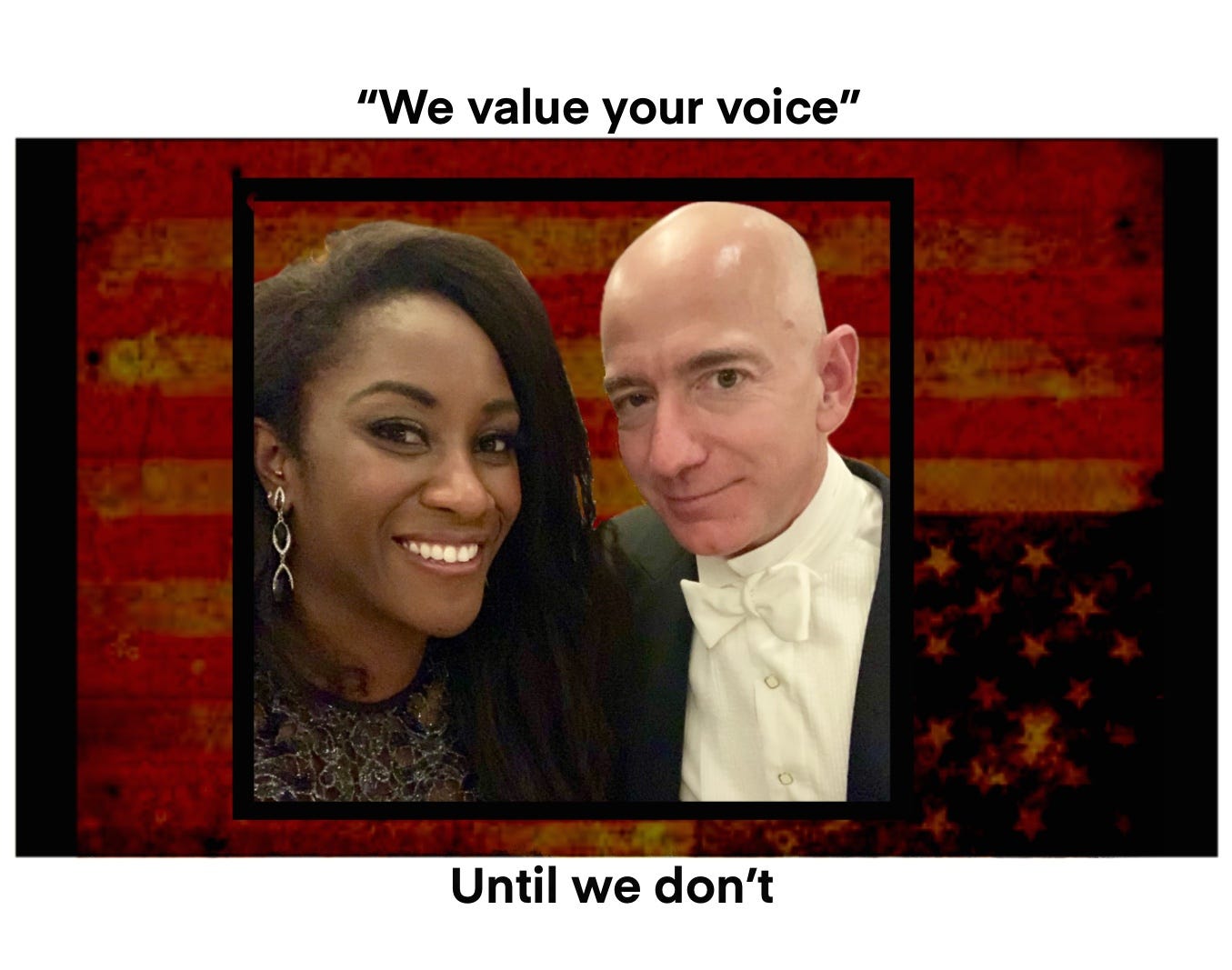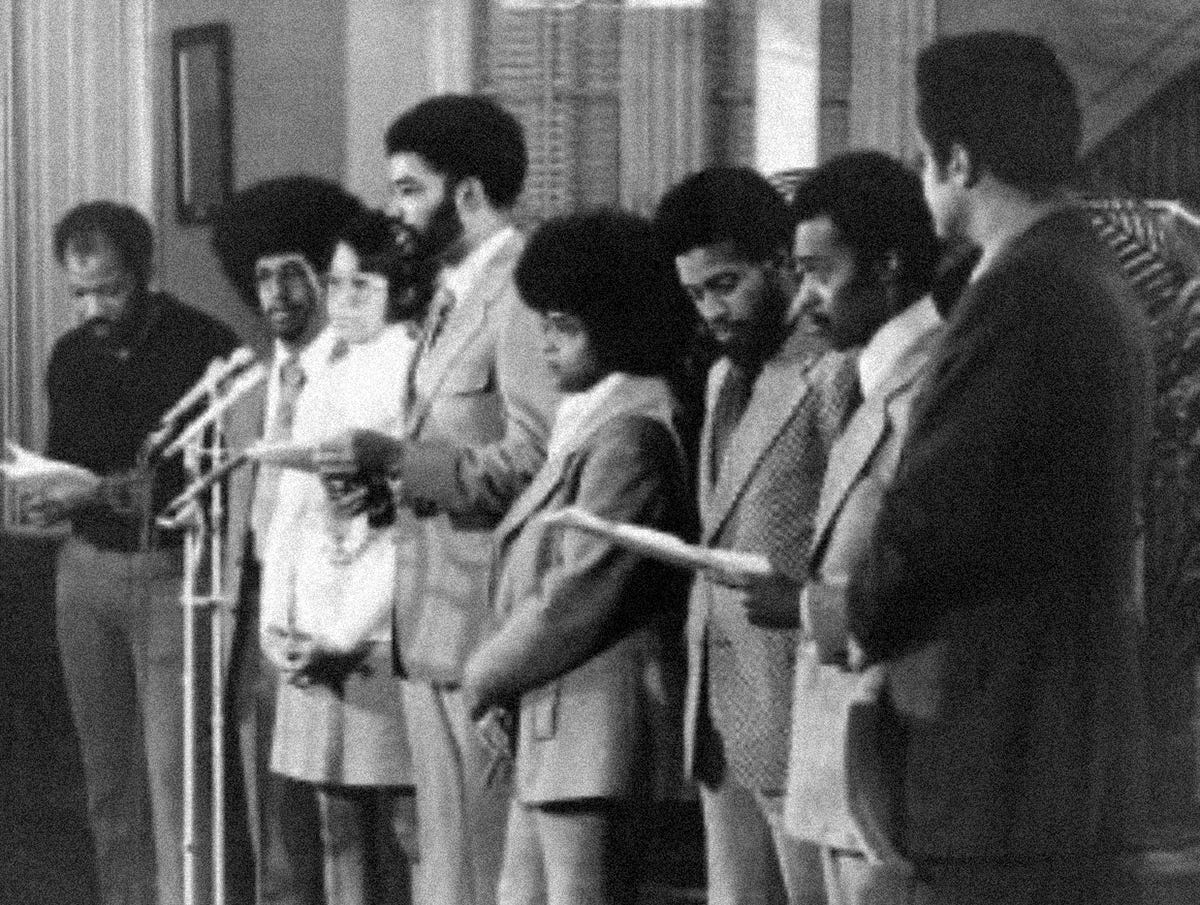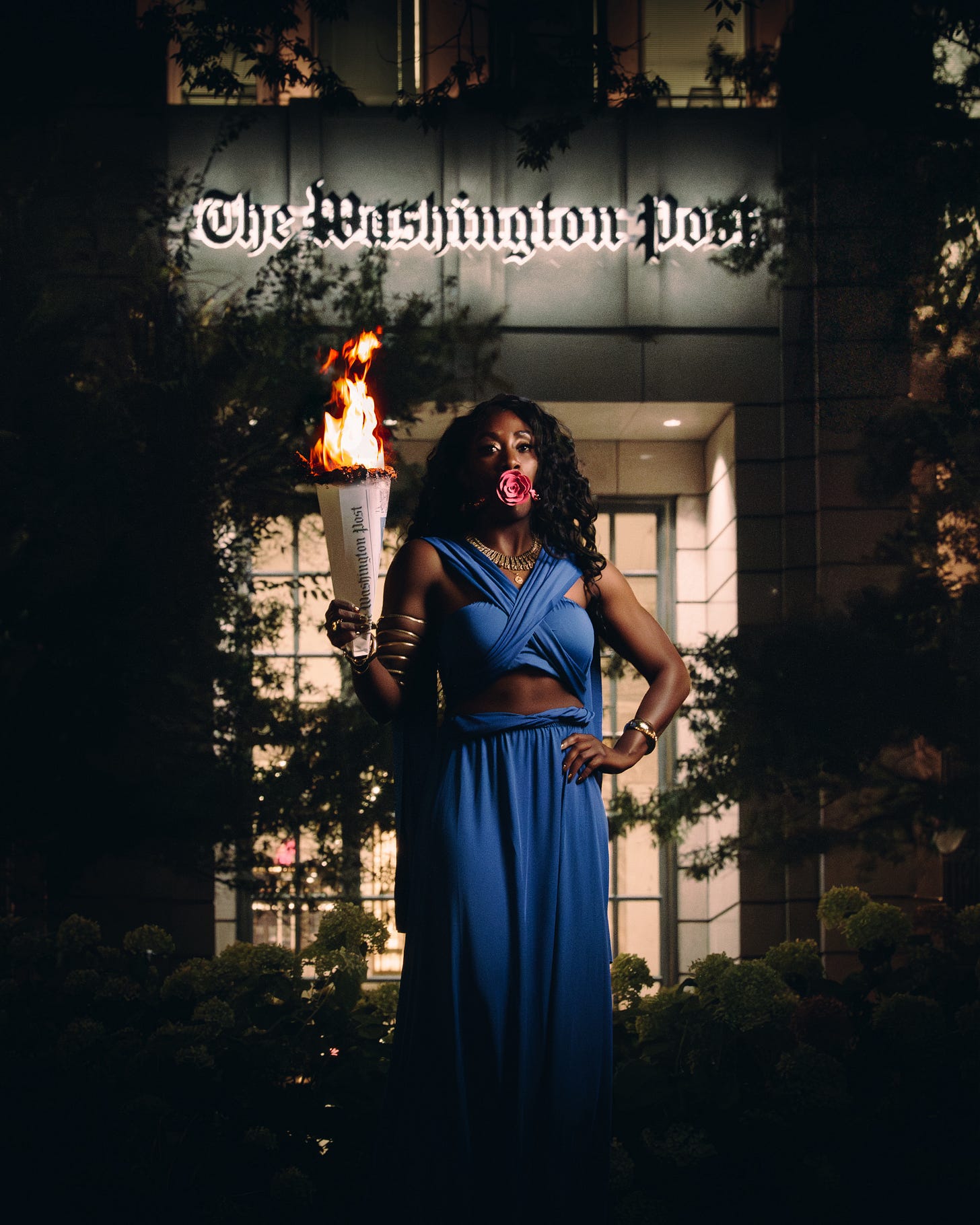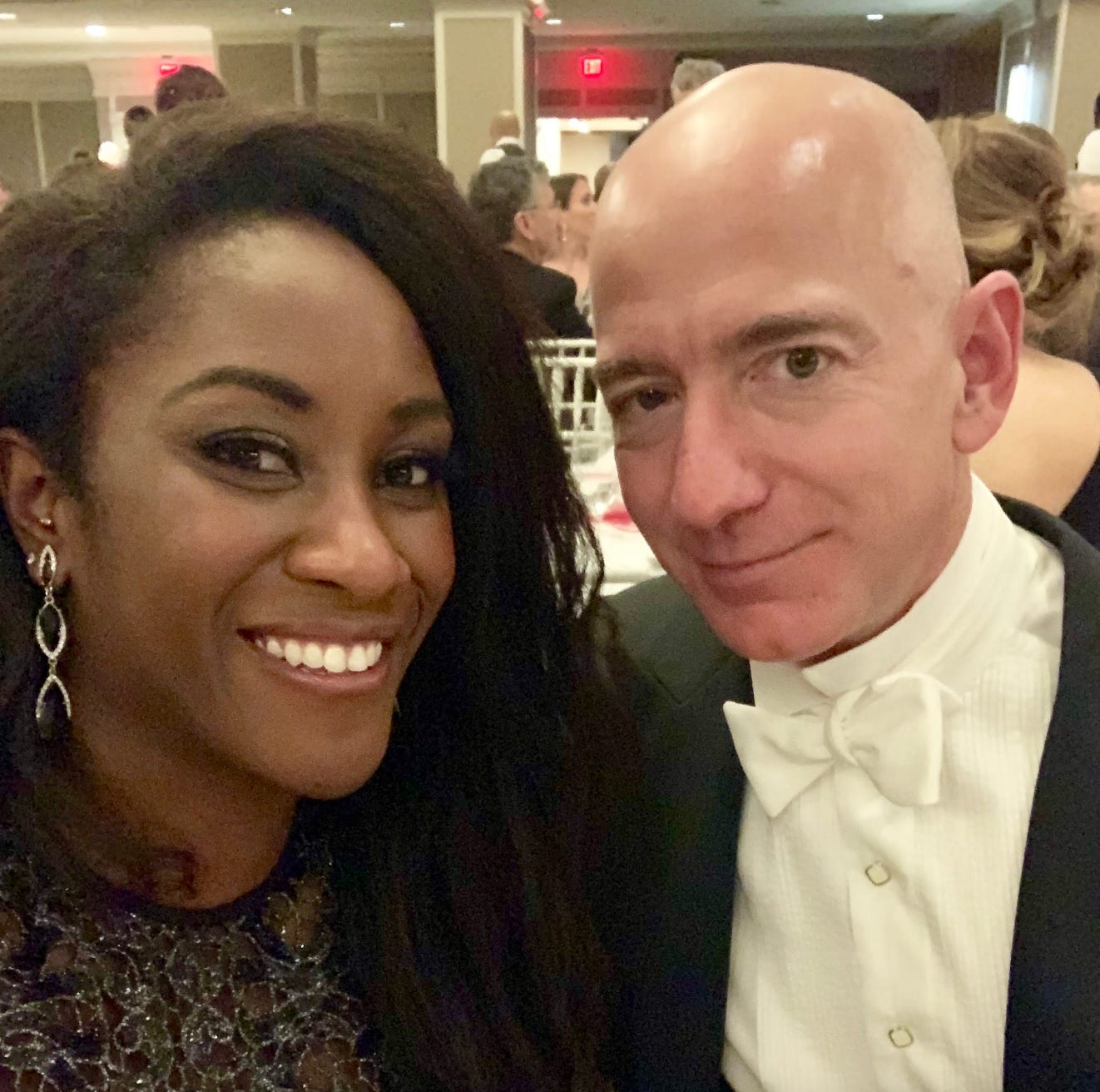If You Don’t See Me by Now
On Firing the Last Black Columnist
“If you don’t know me by now…” drifts up M Street from a ’68 Pontiac Firebird, hardtop, windows down, paint sun-faded to a soft blue. WOOK 1340 AM tags the intro, the eight-track clicks, and the groove settles. Heat lifts off the asphalt. People move without screens in their hands. A bus exhales. The chorus swells at 16th & M, rebounds off brick, and rides the humid air toward the historic Metropolitan AME Church in Washington DC, the sanctuary with the stained-glass windows that has held so many roll calls of conscience. Inside, paper fans tick and a microphone hums. Washington has a new euphemism called “benign neglect,” Moynihan’s 1970 counsel to let the nation’s racial crisis “cool” by withholding focus and aid. The city outside keeps singing; the light inside is filtered. From that counsel in 1970 to the Metro 7’s stand in 1972 at Metropolitan AME and forward to Karen Attiah’s 2025 Bluesky posts, guess what, the key ain’t changed.
Before we introduce the main subject, Karen Attiah, we have to talk about those who came before and the song they rose with on the way to church. The Metro 7, seven Black reporters on the Washington PostMetro desk, stood up in their own house in that AME church and said the mirror was crooked, the ladder was slick, the credits didn’t match the labor. They loved the craft enough to risk the craft. They put their names on paper and their backs on the line.
Say them like a roll call before the sermon: Ivan C. Brandon. LaBarbara A. Bowman. Leon Dash. Penny Mickelbury. Richard Prince. Ronald A. Taylor. Michael B. Hodge. At Metropolitan AME Church they mapped the quiet mechanics of exclusion: who got the beats that built careers; who gathered quotes versus who wrote the frame; who sat in the chairs where yes lives. They asked for numbers, for training, for real shots at the edit desk. Not charity. Symmetry. They did not part the sea, but they changed the current. Policies shifted. Doors cracked. In meetings, a new call-and-response began: Who’s missing? Who’s leading? Who knows this street’s weather from the inside? The chorus from M Street kept drifting through the glass as a test of recognition sung in full voice outside, muffled inside. That is the floor Karen Attiah stood on. Now, watch what happens when the ceiling lowers.
You Will Never Never Know Me (her)
Now we turn to Karen Attiah in her words. She says the Post fired her after a Bluesky thread (Sept. 10, 2025) in which she called out political violence, racial double standards, and America’s ritual apathy toward guns. On Bluesky, she described a familiar cycle: swift absolution for certain white male perpetrators, solemn clichés, and a reset to status quo. She cited Charlie Kirk’s record on Black women and civil rights, noted officials’ rush to sanctify a suspect, and clarified that refusing performative grief for men who champion hatred is not endorsing violence. She says the posts drew strong engagement and little public backlash. Inside the building, the charge sheet landed fast “unacceptable,” “gross misconduct,” “endangering colleagues” and termination followed “without even a conversation.” She contests those claims and names the context: she was the last full-time Black opinion columnist at a paper serving one of the nation’s most diverse regions. In the quiet of the newsroom you can still hear the street’s chorus as recognizable, flatter now through glass asking whether the house knows who is speaking and why.
As Baldwin reminds us: nothing can be changed until it is faced.
After the Dial
Don Lemon lays out the receipts. He rolls the Fox & Friends clip (scroll to timestamp 51:30) where Lawrence Jones talks “compulsory treatment or jail,” and then Brian Kilmeade crosses the line: “Or… involuntary lethal injection or something. Just kill them.” Lemon lets it hang, then shows the on-air, PR-polished apology the next day with teleprompter, tidy phrasing, crisis contained. The show moves on; the job remains. Lemon’s point isn’t “fire him.” It’s the standard: who gets institutional trust after saying the unsayable, and who doesn’t.
He widens the frame. Matthew Dowd makes a sober (if blunt) point about how hateful rhetoric breeds hateful acts—gets canned. Karen Attiah posts a Bluesky thread naming America’s ritual absolution of certain white men and quotes Charlie Kirk’s own words about Black women—she’s fired, “gross misconduct,” “endangering colleagues.” Same week, Lemon notes, employers across the country were purging people for posts about Kirk. Meanwhile, Kilmeade’s “just kill them” earns a weekend apology and Monday’s rundown. That is the asymmetry.
Lemon’s analysis keeps circling the same truth: this isn’t about one host or one columnist; it’s about the rules of speech and punishment as they are actually enforced. When a Black woman names a documented pattern, the institution treats her as the danger. When a powerful white man floats state killing for the unhoused, the institution treats him as salvageable brand. Say the quiet part plainly, like Don does: the apology is part of the protection racket. And the racket decides who is rehabilitated and who is removed.
The chorus from M & 16th is back, full fidelity outside, still muffled through the glass: If you don’t see us by now… In this house and across that dial, who got the preference and why?
The Ballroom Photo: Proximity Is Not Protection
The picture is lovely. That’s the trap. A Black woman and a powerful white man in a bright room of chandeliers and soft laughter, leaning in for the frame. It reads like safety, like arrival, like proof that the doors stayed open after the speech ended. But he isn’t some random guest; he is the paper’s owner, a billionaire whose smile can change the temperature of a newsroom. The camera makes nearness look like covenant. It is not.
Power loves a flattering frame. Institutions love it, too. A selfie becomes evidence that race could not have shaped the ending: See? She’s in the room. She’s good. But a ballroom is not policy. A grin is not due process. The real work hides in ledgers which decides who gets defended when storms hit, who gets walked out with a box, who gets a crisis team and a second chance. The photograph captures access. The ledger records worth.
Read it in the key of the song. The chorus is a demand for recognition that lives beyond manners. Recognition is not a bow tie and a pleasant pose; it is the decision made when your truth cuts against comfort. You can be invited to the table and still be the one the table sacrifices. You can be all smiles on Saturday and expendable by Monday. That’s the distance between optics and covenant, between what the chandeliers promise and what the paperwork proves.
Hold this frame beside the stained glass at Metropolitan AME. Outside, the chorus is full voice. Inside, it’s filtered. The ballroom teaches the same lesson in satin: appearances will tell you everything you want to believe about belonging. If you don’t know me by now, your knowing is only as deep as the light and never as deep as the ledger.
The Audit
The camera gives warmth. The ledger gives truth. We have watched this city learn to look away, then watched seven reporters at Metropolitan AME demand symmetry, then watched a Black woman speak plainly on Bluesky and lose her mic while a television host said the quiet part and kept his chair. That is one story with three rooms: policy, protest, and proof.
Here is the speak it plain read. Karen Attiah was hired and endured in spite of her race and gender. Brian Kilmeade was retained and cushioned because of his race and gender. Institutions tell on themselves in moments like these. Recognition is not a smile in a ballroom. It is a paper trail: who is believed, who is defended, who is protected after the storm. It is hiring that matches the city. It is promotion that follows the work. It is greenlights and backing, not just quotes about values.
Baldwin would ask us to face what we already know. The street has been singing it for years. The church put it on a microphone. The newsroom still filters it through glass. If you don’t see us by now, stop pretending the light is enough. Balance the books: hire with courage, promote with clarity, protect with the same institutional trust extended to those who comfort the brand.
Out at 16th and M, the chorus rises again. Full fidelity in the air, still muffled inside. Let the refrain be policy this time, not performance. Not charity. Symmetry.







Man Xplissett what a piece. There are so many levels in what you wrote. I like the comparisons you do with the music. This is a pure example of white privilege. Killmeade has his privilege and can say what he wants. And no repercussions. No discipline. But the black woman is fired. That is powerful and just disturbing the differences. She was speaking truth but the other guy was speaking hate. Don who was fired eventually got cancelled so he sees and knows it firsthand. Why would anybody not point out that Charlie said Civil rights was a mistake? Those were his words. Nobody is making that up. And why would anybody black feel good about that or not point that out. We can condem what happened to Charlie the shooter was a monster and should be prosecuted but we can still point out that this man said Black women lacked the brains to do jobs. So now pointing that out is wrong??? I guess we’re supposed to call George Wallace a civil rights icon now. Just rich. She will land on her feet because she’s a great journalist. Just as Don has. X I’m hoping Don has you on his show one episode because you two need to connect. Thank you for this wonderful writing.
Oh my- I always read your comments on Letters From An American, and today I got to this POWERFUL piece of writing. Thank you! As a 66 year old native southern white woman, and mother of a half African American young man- race relations have been of great interest to me all my life. Thank you for your - I’m not even sure what to call it- I only know if there were someway to download this piece, and all your “receipts” into the hearts and minds of every American, what a better place and people we would all be!